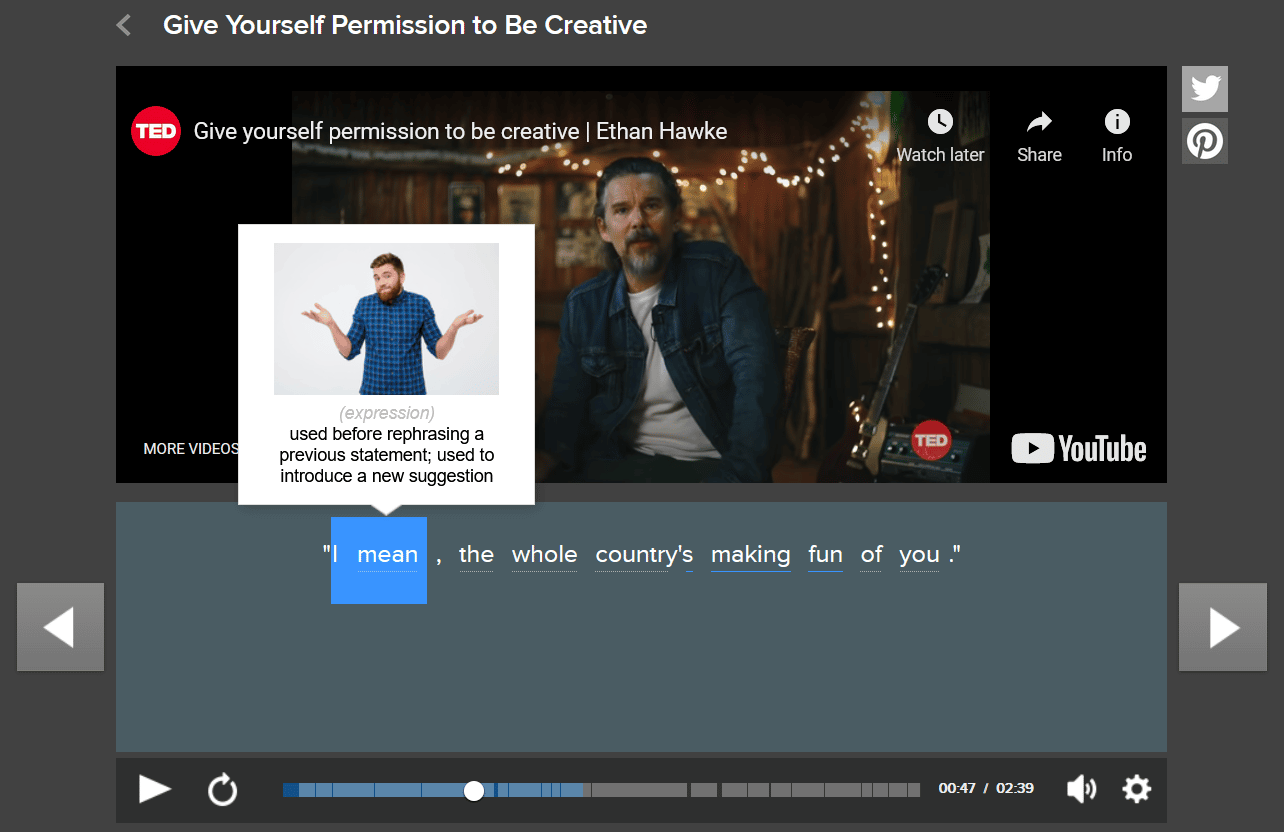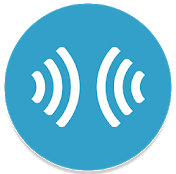How to Be Able to Talk Continuously

How to Speak English Well: 25 Simple Tips for Extraordinary Fluency
Do you want to learn how to speak English well?
Read on for 25 solid tips that will help you speak English more fluently, in less time.
Our team includes language learners from different countries who picked up English as a second language as well as native English teachers, so these are all based on our own experience.
From pronunciation practice to handy online resources, consider this your roadmap to becoming confident with English.
Contents
- 1. Get clear on what fluency means
- 2. Immerse yourself in English every day
- 3. Accept that English grammar has a lot of exceptions
- 4. Use mirroring to answer English questions
- 5. Focus on whole phrases instead of single words
- 6. Learn intonation, body language and gestures
- 7. Use speech-to-text for all (English) text messaging
- 8. Talk yourself through everyday activities
- 9. Memorize conversation starters (and use them!)
- 10. Share your opinions online
- 11. Learn some English slang
- 12. Look out for common pronunciation issues
- 13. Record your own English-language audiobooks
- 14. Record what you want to learn, then listen to it throughout the day
- 15. Think directly in English instead of translating
- 16. Set specific goals
- 17. Figure out your "weak spots"
- 18. Pay attention to the sounds native speakers use
- 19. Don't be afraid to make mistakes while talking
- 20. Record your mistakes
- 21. Review and test yourself often
- 22. Practice using new words right away
- 23. Don't worry too much about grammar
- 24. Get comfortable first with the English words you know
- 25. Learn from everyone who speaks English
- Other Resources for Learning to Speak English Fluently
-
- "Why English Is Easy: Language Hacks That Make English Easy"
- The English Speaking Practice app
- The SayHi translation app
- American superhero movies and TV
- The English TV YouTube Channel
- Loecsen Learn English
Download: This blog post is available as a convenient and portable PDF that you can take anywhere. Click here to get a copy. (Download)
1. Get clear on what fluency means

You know that you want to become fluent in English, but what does that mean?
There are two parts to fluency: knowing the language and knowing how to produce the language.
Being fluent means that you can use the English language comfortably. You can communicate freely and you can have conversations with native speakers without having to constantly look for help.
Fluency can also be seen in how you speak. You can know plenty of English vocabulary, but if you have to pause or repeat a lot when speaking, your fluency might not be so obvious to someone. If you speak very slowly or in a very flat, unemotional manner, then you won't sound very fluent, either.
On the other hand, sounding fluent doesn't mean you actually are speaking good English.
To be fluent in English, you need to master both the language and how you speak it!
There's often an expectation that you must know a certain number of words for fluency. But it's important to remember that you can't just study the words and grammar. It can be scary, but you'll also need to practice speaking.
The tips below will help you master how your speaking skills so that you can speak proper English and sound good doing it. Don't forget how important both features of fluency are!
2. Immerse yourself in English every day

Studying English for an hour once a week isn't usually enough to make any real progress. The best way to quickly improve your English is to spend at least a few minutes practicing every day.
There's a special language learning method called "immersion." With immersion, you try to surround yourself with the language as much as you can in your day-to-day activities. You want English to become part of your daily schedule so that you're frequently learning and practicing until it becomes natural to hear and speak the language.
Get 14 Day FluentU Free Trial
You can create immersion in a lot of fun, creative ways, besides just constantly studying English from a book or a course! You can switch your phone settings to the English language. You can start watching and listening to English movies and songs, keep an English diary or volunteer in a place where English is required.
Immerse yourself in English as much as possible every time you study. Challenge yourself to listen to, read and even say things in English that you think might be too difficult for you. If you want to speak English fluently, you need to make it an essential part of your everyday life.
A program like FluentU can help with this, by exposing you to the natural sounds of the language with the support of learning tools. FluentU lets you watch authentic English videos—which are videos that are made by and for English speakers. For example, you can watch clips from popular movies, well-known music videos, children's cartoons for beginners or TED talks for more advanced learners:

A common problem with native content, though, is that it's easy to get lost in it if you're not fluent yet in the language. FluentU fixes this through interactive subtitles—tap on any word, and you'll see a detailed in-context definition, an audio pronunciation, example sentences and clips from other FluentU videos where the word shows up.
You can also study new words as flashcards and take post-video quizzes that hone your speaking and listening. And the more you watch and understand authentic videos, the more you'll get used to natural speech.
FluentU has both web and mobile versions (Android and iOS).
3. Accept that English grammar has a lot of exceptions

Sometimes, you can find patterns in English grammar, but other times English doesn't make sense at all.
For example, why are "read" (pronounced reed) and "read" (pronounced red) the same word, but said differently depending on whether you're speaking in the past or present tense? Or why is "mice" the plural of "mouse," but "houses" is the plural of "house"?
Unfortunately, there are many exceptions to English rules. It's easy to get stuck on learning how to speak English properly if you try to find a reason for everything. Sometimes, English is just weird! So the best thing to do is just memorize the strange exceptions and move on.
4. Use mirroring to answer English questions
Listen carefully when someone asks you a question in English and you'll answer perfectly every time. English questions are like mirrors:
- Does he…..? → Yes, he does.
- Can she….? → Yes, she can.
- Is it….? → No, it isn't.
If someone asks you a question and you're not sure how to answer, start by thinking about the words used in the question. The person has already said most of the words you need to make your answer.
Instead of just memorizing English grammar, start to look for patterns like this one. There are a lot of simple ways to "cheat" and make it easier to remember the right words.
5. Focus on whole phrases instead of single words

Speaking English fluently means being able to express your thoughts, feelings and ideas. Your goal is to speak English in full sentences, so why not learn it in full sentences?
You'll find that English is more useful in your everyday life if you study whole phrases, rather than just vocabulary and verbs. Start by thinking about phrases that you use frequently in your native language, and then learn how to say them in English.
6. Learn intonation, body language and gestures
True English fluency is about more than just vocabulary and grammar. If you can figure out intonation, body language and gestures, you'll really look and sound like a native speaker.
Intonation is the "rise and fall" or tone changes in how a person speaks. Body language is how a person uses their own body to support (or go against) what they mean. Gestures are hand and body movements that work together with what someone is saying.
It's not easy to learn these three things because they seem very natural. One way to learn is to just watch how native English speakers communicate with each other.
One way to study these aspects of the language is by hiring an English teacher, if that's in your budget. Another is watching YouTube videos, if you can avoid getting distracted with other videos.
7. Use speech-to-text for all (English) text messaging
You can practice English speaking even when you're texting people. Just speak your texts instead of typing them!
You may need to change your settings to enable speech-to-text first. Then, find the "speech" option on whatever keyboard you're using. Often, you just need to tap a microphone icon on the right side of the keyboard.
Start speaking, and your words will appear on the screen. No one hears you talk, but you still get practice. Pretty good deal, huh?
But what if most of your communication is with friends and family in your native language? Microsoft Translator has a way around this. Check to see if your native language is included in Microsoft's Conversations feature—if it is, you can speak out loud in English, and have your words automatically translated into text in your native language.
Your chat partner can speak in your native language and have their words show up for you in English. This way, you get English speaking (and reading) practice while having the conversations you'd be having anyway.
8. Talk yourself through everyday activities
Think about all the things you might do that have a beginning, a middle and an end. For example, following a recipe when cooking dinner or putting together a piece of furniture.
These processes are opportunities to improve your English speaking skills. Write out instructions for a process in English on a piece of paper. Make it as simple as possible and number your steps.
For cooking something, your instructions might start like this:
- Peel the garlic.
- Dice the garlic.
- Peel the onions.
- Slice the onions.
Once you have your instructions, follow them. In the meantime, say what you're doing out loud. For example, "Now I'm cutting up the onions. Uh oh, my eyes are starting to water!"
Your instructions are a kind of "cheat sheet" to help you along the way. They'll help you talk continuously, without having to stop and think about what to do next.
9. Memorize conversation starters (and use them!)
You might miss out on opportunities to practice English speaking if you just can't think of anything to say.
An easy solution to this is to memorize conversation starters or ideas for beginning conversations. You can find lots of these online. For example, here's a list of 250 conversation starters from Conversation Starters World.
Of course, you wouldn't want to use all of these at any moment. It would probably seem weird if you just walked up to someone and said, "What three words best describe you?" But memorizing some ideas will help you feel better about talking to people in casual situations or to keep conversations going when talking to exchange partners.
10. Share your opinions online

To really learn English speaking, you need to learn how to express yourself in English. Even if you have ideas for conversations, it can be hard to know how to put them into your own words.
You can practice this by participating in conversations online. Posting on social media, leaving comments on articles or writing reviews are all good approaches.
Goodreads is a site where people leave their thoughts about books they've read. Writing about books and movies is always a nice way to practice sharing your opinions in English, because they give you a lot to think about!
But if you don't have time to do this, there are simpler options: Watch a short video on YouTube and leave a comment underneath it. Post short opinions on Twitter about anything. There are many options for practicing your English skills before you speak out loud!
11. Learn some English slang
While you should be focusing on learning standard English, it can be helpful to know English slang words and phrases so that you can "stay current" and understand modern English speech. Slang is always present, especially online, so you can't really avoid seeing it.
Knowing slang, idioms and other casual expressions can improve real English fluency, because they can let you follow along with the kinds of conversations that happen today.
12. Look out for common pronunciation issues
While there's no single "correct" English, if people have trouble understanding you, it'll be hard for you to speak confidently.
There's no magic to improving pronunciation—you just need to learn the mechanics, and then practice. It's all about how you move your mouth and use your lips, tongue and throat. For this, you should watch native speakers while they're talking and observe not just what they say, but how they say it.
It's also helpful to know about well-known pronunciation issues. English has a lot of pronunciation "traps" that you should watch out for.
13. Record your own English-language audiobooks

When we think of practicing a language, we often think of putting ourselves in situations where we have to use the language. But the truth is, a lot of confidence and fluency come from actually speaking. This technique can help you do a lot more of that.
Think about your favorite books. Even if you don't have any favorite books that were written in English, you can probably find some in English translation. For example, the Harry Potter series has been sold all over the world.
Take any English-language book that you already enjoy, and record yourself reading it in English. This will take you a while, of course. But it's a way to practice your English pronunciation every day in a way that's fun and interesting for you.
Once you finish recording the book, you'll have a homemade audiobook of it to listen to, which will give you a way to practice your listening skills, too.
14. Record what you want to learn, then listen to it throughout the day
Use the same technique described above to learn English in general while also practicing your speech.
For example, let's say that you'd like to get better at talking to waitstaff. Maybe you see a FluentU post that includes examples of English conversations to have in restaurants. Instead of just reading the post and trying to remember the examples, record yourself reading it!
This will give you multiple opportunities to remember the material: when you first read it, when you read it out loud and when you listen to yourself reading it later.
15. Think directly in English instead of translating
Stop thinking of yourself as someone who is learning English, and start thinking of yourself as someone who speaks English. It's a small change, but it'll make you feel more confident and help you to better use the English you already know.
This also means you need to start thinking in English. If you want to say the word "apple" in English, for example, you probably think of the word in your native language first, and then try to think of the correct word in English. Instead, try imagining a picture of an apple, and then just think the English word "apple."
Real fluency happens when you stop mentally translating conversations. This is the biggest step from learning English to just being an English speaker!
16. Set specific goals
Fluency is a very high level to reach and will take a long time to achieve, so "becoming fluent" can be a pretty unclear goal. Having such a big, non-specific target won't be helpful in planning out your studies.
That's why you should think of more concrete and obvious goals that can lead you to fluency. By themselves, they may seem like small steps, but all together they'll provide a steady path in your English learning journey.
Good goals should be specific and achievable. When setting a goal, you should decide exactly what you want to learn, and how long you want to spend learning it.
Here are some examples of good goals:
- Learn 30 new English words in 30 days
- Have a conversation with a native English speaker this week
- Learn to conjugate five irregular verbs before your next tutoring lesson
- Perfect your pronunciation of 10 words over the weekend (then ask a native speaker to tell you how you did!)
Make sure that the goals you set are reasonable and challenging enough to keep you motivated. You want to achieve your goals without over-stressing yourself!
17. Figure out your "weak spots"
You might find some parts of the English language are especially difficult for you. These "weak spots" can be anything: grammar usage, pronunciation, sentence formation and so on. It's important that you find out what they are so that you can focus on improving them.
English does have a lot of tricky features, and some can be even trickier depending on your native language. Pay attention to what you're having problems with and dedicate more studying to it.
You want to make sure you improve in all parts of the English language without lagging behind in any of them.
18. Pay attention to the sounds native speakers use

When most students listen to a native English speaker, they focus on understanding what all the words mean. This is definitely important, but there's a lot more you can learn from listening.
Try listening not just to what the words mean, but to how the person says them. Notice which words the person links together in a sentence, or when they say "ya" instead of "you." Try to remember these details the next time you speak and your English will begin to sound more natural.
It sounds easy, but it can be difficult to actually do! When you listen to native English speakers, it can be hard to understand every single word that's spoken. They might use many words you don't know, talk too fast or have a strong accent.
19. Don't be afraid to make mistakes while talking
Sometimes, it can be difficult to put all those rules and words together into a simple sentence. Don't let the fear of saying something wrong stop you from speaking at all.
Even if you think you're making a mistake, keep speaking anyway. Most of the time, people will understand what you're trying to say, even if you make a mistake.
Plus, the more you speak, the easier it gets, and the faster the right words will come to mind.
20. Record your mistakes

Don't be afraid to make mistakes… but also make sure that you understand them!
When you know that something went wrong in your English conversation, make a note of it (in your mind or, better yet, on paper). In your own time, study what exactly made you trip up. Did you use the wrong vocabulary? Was something pronounced incorrectly? Maybe you were using the wrong tense in your sentences?
Mistakes are unavoidable and necessary, but to lower the chance of repeating the same mistakes, you must learn (and not run away!) from them.
21. Review and test yourself often
Reviewing what you learn is just as important as, well, actually learning!
Without proper review, you can easily forget a lot of previously learned material. This can greatly slow you down in your path to fluency because advanced English constantly builds upon basic, easier concepts. That's why you must frequently test your skills.
You can review your learning in a number of different ways. You can make your own vocabulary quizzes, do translation exercises or have quick training sessions with a speaking partner. There are also online resources that you can use for review.
You should also think about when to review. Maybe you want to review right after you finish a new topic or after completing a whole unit of study. Or maybe you want to be extra studious and just review every time you study English!
Your reviews and tests will help you see your progress in English. Seeing how much you've improved can greatly increase your motivation to learn!
22. Practice using new words right away
There's an expression in English: "Use it or lose it," which basically means if you don't practice an ability, you might forget it. This idea can be used to help you remember new English vocabulary.
The best way to remember a new word is to use it right away so that it stays in your memory. When you learn a new word, try to say it in sentences a few times over the next week and you'll be less likely to forget it.
Sometimes, you may learn a word or phrase that might not be immediately useful to you. It's okay to not focus on memorizing that vocabulary right away, especially if there are other more important things to learn.
23. Don't worry too much about grammar
The key to learning a language is finding a balance between studying and practicing. Speaking English fluently isn't the same as knowing perfect English grammar—even native English speakers make grammar mistakes!
Fluency is about being able to communicate. That's why sometimes it's important to put the grammar textbook away, so you can go out and practice those writing, reading, listening and speaking skills in the real world. As you keep practicing, you can learn plenty of grammar rules along the way.
24. Get comfortable first with the English words you know
When you're writing and saying your own sentences, focus on using the words you're already familiar with. You may want to use more difficult, advanced English words to sound more fluent, but you should stay true to your skill level and keep practicing what you already know.
Make sure that you're "comfortable" with the English you use, instead of just trying out new, unfamiliar words just because you want to. Doing so can lead you to say incorrect or strange things.
Of course, you do want to learn more and more words and skills to advance. I recommend studying a new word for a little while in context (in sentences and videos) before you use it in real conversations.
25. Learn from everyone who speaks English
You don't have to only learn English from textbooks and teachers—anyone who speaks English can help you practice.
Imagine how you'd feel if someone asked you, in your native language, how to pronounce something. Would you be angry? No! You'd probably be happy to help, just like most English speakers are happy to help you.
If you know any English speakers, whether it's a friend or co-worker, take advantage of the opportunity to practice and learn from them. Make sure to also ask any specific questions you have and be open to feedback.
Other Resources for Learning to Speak English Fluently
"Why English Is Easy: Language Hacks That Make English Easy"
We've seen a lot of English learning products out there, but we really like this one. It's not a normal English learning course. Instead, it's a whole new approach to learning English.
What makes the course great is the author, the famous polyglot Benny Lewis. He has many years of experience quickly learning and mastering multiple languages. He shows you the shortcuts and techniques that he's learned over the years.
The English Speaking Practice app

This app lets you practice having basic conversations in English. It's really simple to use!
Just choose a subject that you want to hear a conversation about. Then, listen to the conversation. After that, you can take a quiz to test your understanding, or use the "Record" tab to practice speaking.
Decide which person in the conversation to speak for, and go through the dialogue talking as them. You can then save the recording and play it back.
The SayHi translation app

This is a simple voice translation app that you can use to have bilingual conversations. However, you can also use it as a quick way to look up translations or to practice speaking, as long as the app has an option for your native language.
Set up the translator for a conversation between English and your native language. Then, try speaking English and see how your English translates. This will give you an idea of how well the app understands your English speech.
Also, if you ever forget how to say something in English, you can speak your native language into the mic and see how it translates into English. This can be much faster than using a dictionary!
American superhero movies and TV
Watching English-language movies and TV, in general, is a good way to get used to natural speech.
American superhero movies and TV series are especially great for learning English because they're meant to appeal to a wide audience, sometimes including children. This means that it's usually pretty easy to figure out what's going on.
Another reason why superhero stories are easier to understand is that they tend to be very dramatic and emotional. Characters will often talk about what's happening in a very loud and obvious way.
While there's a lot to choose from, a good way to start is with some of the CW network shows that are available on Netflix, like "The Flash" and "Black Lightning." These shows have a lot of talking in them, and focus a lot on relationships between characters. You can keep up with them for multiple seasons and become used to the way different characters talk to each other, all while being entertained by exciting storylines.
The English TV YouTube Channel
This YouTube channel has a bunch of videos that you can use to hear different types of English speech and conversation. For example, this video, "Conversation Between Two Persons in English Speaking – Practice English Conversations Dialogues," includes over 50 minutes of multiple conversations between native English speakers.
The audio in this video and others like it on the English TV YouTube channel are actual recorded conversations. American English is the dialect of English mostly used in these conversations, but there are examples of British English and Australian English, as well.
These conversations are also spontaneous (done with a script, natural), so this is the way that English is actually spoken by native speakers. There's a bit of slang used, but these conversations will help build your listening skills so that you can understand English speech in real life.
Loecsen Learn English

This is a free online English course with a big focus on speaking. To practice your English speaking, scroll down to "Start a new quiz." You'll then be able to choose from different lists of phrases that you can listen to and repeat.
When you repeat a phrase using the microphone on your computer, you get to see if the program is able to understand your speech. This is useful even if you already know the material in the lessons because you get a chance to speak English out loud and practice your pronunciation.
If you're wondering how to improve your English speaking skills, there isn't one easy answer.
Learning how to speak English fluently isn't something that happens overnight. Because of this, it's important to have tools and techniques ready for practicing every day.
Ultimately, if you have activities that you enjoy and that require you to speak English, your skills will improve more and more over time.
Try the resources and suggestions above, and pay attention to how they make you feel. Which ones help your confidence? Which ones seem to help you speak English over longer periods of time?
Use the methods that work for you, and your speaking will come together naturally.
Download: This blog post is available as a convenient and portable PDF that you can take anywhere. Click here to get a copy. (Download)
petersonbonly1984.blogspot.com
Source: https://www.fluentu.com/blog/english/how-to-speak-english-well-fluently/
0 Response to "How to Be Able to Talk Continuously"
Post a Comment